A millionaire who’s spending $2 million a year on a mission to ‘live forever’ has explained exactly why he’s doing it.
Finance technology magnate Bryan Johnson has made headlines for his unusual regime to extend his life, which began in 2021.
Dubbed ‘Project Blueprint,’ he’s hacking his health in an attempt to reverse the aging process in every single one of his organs and live forever.
Johnson made his fortune after founding payment systems company Braintree in 2007, which acquired Venmo for $26.2 million in 2012.
The business was then bought out by PayPal for $800 million in 2013, cementing Johnson’s multimillionaire status.
But the entrepreneur – who now reportedly has a net worth of $400 million – spent much of the following decade binging on junk food, drinking in excess and dealing with mental health issues, including depression.
So he decided to change that, and eating all his meals from his strict diet before 11am and going to sleep at 8.30pm are some of the more tame steps taken by the 47-year-old.
But his upcoming Netflix documentary, Don’t Die: The Man Who Wants To Live Forever, explores the more extreme practices he’s tried in an attempt to prolong his time on Earth.

Bryan Johnson has gone to some extreme lengths to reverse the aging process (Instagram/@bryanjohnson_)
Johnson explains his rationale behind blood plasma transfusions between him, his 17-year-old son, Talmage, and his 70-year-old father – even previously claiming that his ‘super blood’ had reversed his dad’s age by 25 years.
However, he’s since stopped the practice after six months due to ‘no benefits’ being detected, according to Fortune.
In the documentary trailer, he explains exactly why he’s wants to live forever.
He says: “I really want to have multiple lifetimes with my son. One hundred lifetimes isn’t going to be enough.”
Johnson previously told The Guardian in 2023 of the realization he had before starting up Project Blueprint, explaining after his decade-long slump: “What I said about myself is: do I really think that I can live my best life on my own?
“And I decided that, no, I can’t. I just don’t have what it takes. I really need this augmentation.”

Bryan and his son Talmage (Netflix)
Tiger King director Chris Smith is behind the new documentary, which delves deep into into Johnson’s psyche and gives intimate access to his grueling daily routine, home life and medical procedures.
It also aims to tackle the ‘larger issues it raises about our fear of mortality and long-held notions about growing older’.
Smith told Tudum: “Last year, I saw a headline about a man spending $2 million a year to become 18 again.
“That initial curiosity led to a 12-month journey following Bryan Johnson’s quest and its effect on those closest to him, while interviewing experts from around the world to get a better understanding of the people trying to live healthier, longer.
He spoke of the impact working on the documentary has had on his own health, adding: “A year later, I drink less, go to bed earlier, and wear a ring that tells me how bad my sleep is.”
Don’t Die: The Man Who Wants To Live Forever drops on Netflix on Wednesday (January 1).

Broken sleep is a niggle that can set you up for a bad day, but there are a few things you can do to help sleep through the night.
Personally, I’m used to waking up several times a night now as my son, a toddler, is in a routine where he wakes up at around 2am to get into mine and his mom’s bed and proceeds to take up my side of the mattress.
But who can relate to that?
However, what may resonate with you is when you suddenly wake up in the middle of the night – most commonly at 4am, so the early morning – but come on, we all call it night unless you’re one of those nutters like Mark Wahlberg.
Well, if you’re one of those people who keeps waking up at around 4am, then deputy CEO of The Sleep Charity Lisa Artis is on hand to explain why – and it’s not just because you’re tired.
“We start to experience less deep sleep after around four to five hours,” she told the Daily Star.
Meaning if you tend to go to sleep at around 11pm, then your body clock is waking you up hours later. But why is this?
“Sleep is guided by our internal clock or circadian rhythm. One of the most significant and well-known circadian rhythms is the sleep-wake cycle,” Artis explains.
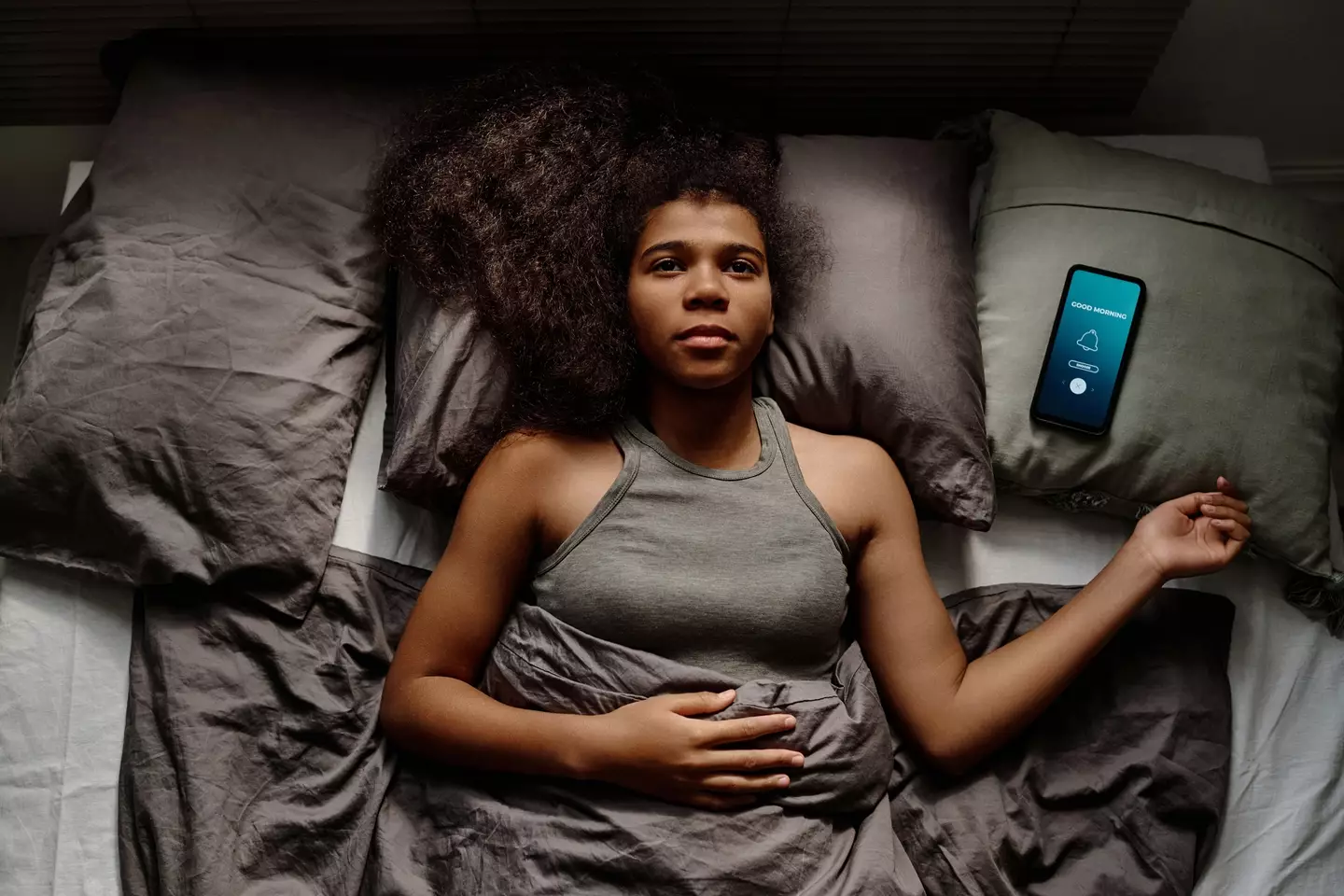
If you wake up in the middle of the night it is often because the hormones running your body clock are all skewed (Getty Stock Image)
“Sleep is regulated by the levels of two hormones: melatonin and cortisol, which follow a regular 24-hour pattern. Melatonin helps you fall asleep, while cortisol aids in waking you up and keeping you alert.”
So, basically you need to keep an eye on what increases or decreases the levels of these two hormones in your body… and, quelle surprise, tech like cell phones, TVs, and tablets can drastically affect your ‘biological alarm cock’.
Knowledge of these 4am wake ups comes following research carried out by UK-based health insurance company Bupa that surveyed 4,000 Brits over the age of 18 and found that more than three-fifths of them wake up in the middle of the night. Claiming that 32 million Brits wake up at precisely 4.05am worrying about their health.
Anyway, there are a few things you can do to prevent waking up – Dr Mariyam H Malik, of Pall Mall Medical, has listed a few things you can do for a peaceful night sleep.

Hopefully these tips will get you sleeping and waking with a smile again (Getty Stock Image)
She suggested: “Keep a journal by your bedside and write down your worries before going to bed. This practice can help get your concerns out of your mind and onto paper, making it easier to let go of them temporarily.
“Engage in calming activities before bedtime, such as reading, listening to soothing music, or practising relaxation techniques, like deep breathing or meditation.”
There are a few other things you can do including meditating or practicing mindfulness exercises before going to bed as itn helps to reduce anxiety.
One of the things you shouldn’t be doing before bed is doomscrolling on your phone – in fact Malik even advises people to leave their devices outside the bedroom, adding: “Blue light from electronic devices can suppress melatonin production.”
Hopefully, this will help you catch some z’s. Night, night guys

Experts have explained how the world’s economy could forever transform after scientists made an ‘eye popping’ discovery in a US lake.
A study found some 18 million tons of lithium – worth a staggering $540 billion – could be sat at the bottom of Salton Sea in California.
Known as ‘white gold’ due to both its value and appearance, it’s commonly used to help power our mobile phones, laptops and electric cars, as well as in pacemakers, toys and clocks.
Scientists initially thought the lake contained four million tons of lithium, and that was enough for California Governor Gavin Newson to hail Salton Sea ‘the Saudi Arabia of lithium mining.’

Some 18 million tons of lithium are thought to be in Salton Sea (Allen J. Schaben / Los Angeles Times via Getty Images)
But this updated estimate could be a real win for the US economy.
For context, 18 million tons of lithium would be enough to power more than 382 million electric vehicle batteries.
Sammy Roth, climate columnist for the Los Angeles Times, said on KJZZ radio’s The Show: “This new report out of the federal government [is] really a sort of eye popping number.
“They found that there’s potentially enough lithium down there to supply batteries for 382 million electric vehicles, which is more, more vehicles than there are on the road in the United States today.
“So, if we could get all that lithium, that’d be huge.”
While Michael McKibben, one of the Salton Lake study’s authors and a geochemistry professor at the University of California, explained: “This is one of the largest lithium brine deposits in the world.
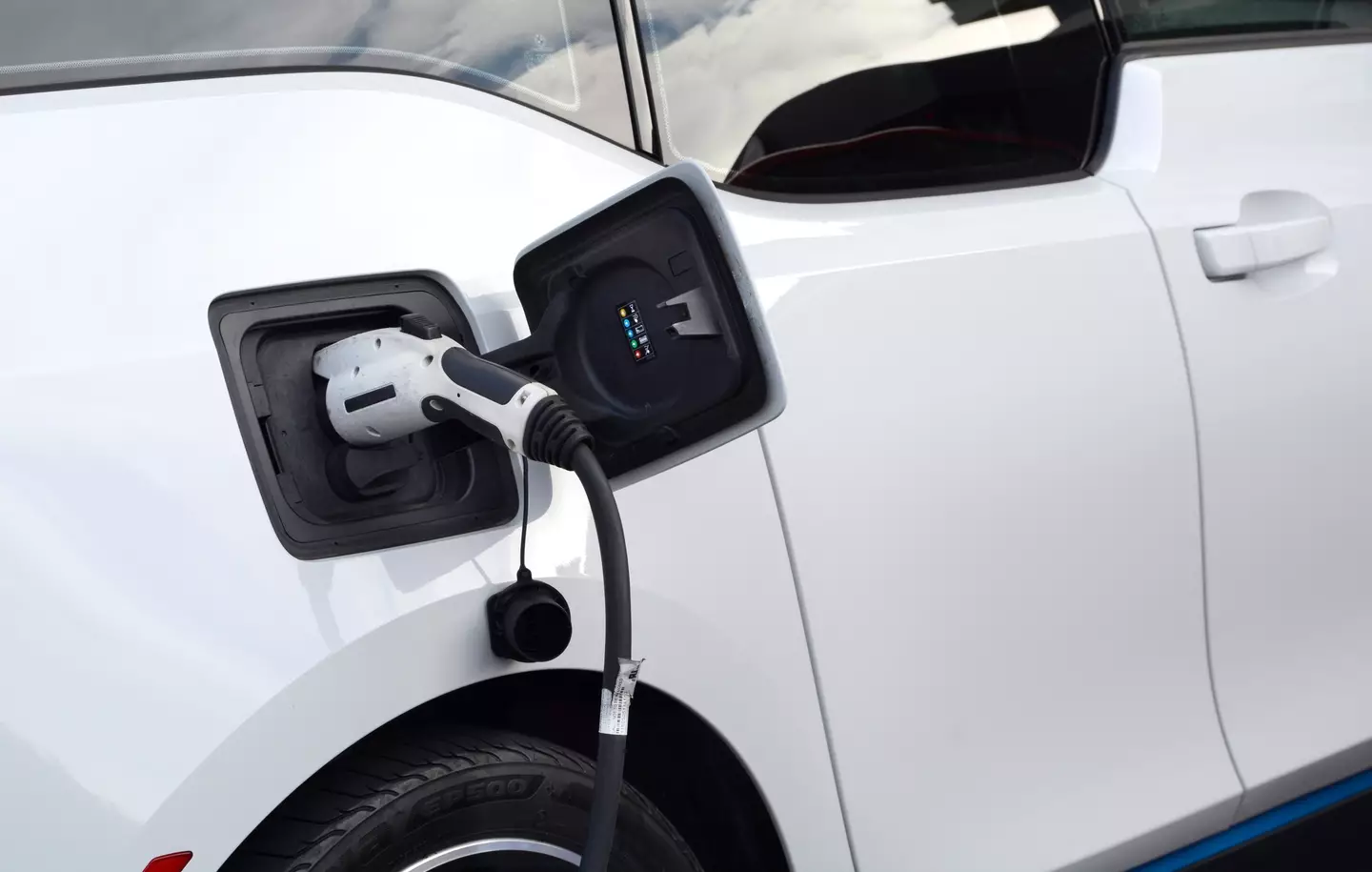
Lithium is used to create rechargeable EV batteries (Robert Alexander/Getty Images)
“This could make the United States completely self-sufficient in lithium and stop importing it through China.”
This would have a major impact on the economy, as China is currently the second-biggest exporter of electric vehicles, behind Germany.
According to Tendata, China was responsible for 22.7 percent of the world’s EV exports, worth a huge $34.1 billion.
The US was further down the table as the sixth-largest, exporting just 4.8 percent, worth $7.26 billion.
However, US EV imports from China increased from $7.2 million to $388.8 million between 2018 to 23, according to the US Trade Commission.
So it could be a pretty big blow to China if the US was no longer importing their EVs.
And the US would then be exporting more of its own EVs too, which would have a knock-on effect on the rest of the big exporters.
As of 2023, China has the largest market share of EVs at 37 percent of all new cars, while Europe is second with 24 percent and the US in third with 9.5 percent.
The US could increase their exports and their market share, making them more money and establishing themselves as EV leaders – something Elon Musk would certainly be celebrating.
And work has already began on Salton Sea’s lithium extraction.
In January, construction of the first large-scale direct lithium extraction plant near the lake began, the first of seven planned phases for the $1.85 billion facility, as per ENR California.
Conversation3 Comments
Featured Image Credit: MARTIN BERNETTI/AFP via Getty ImagesSTR/AFP via Getty Images
Topics: Environment, Technology, California, Science
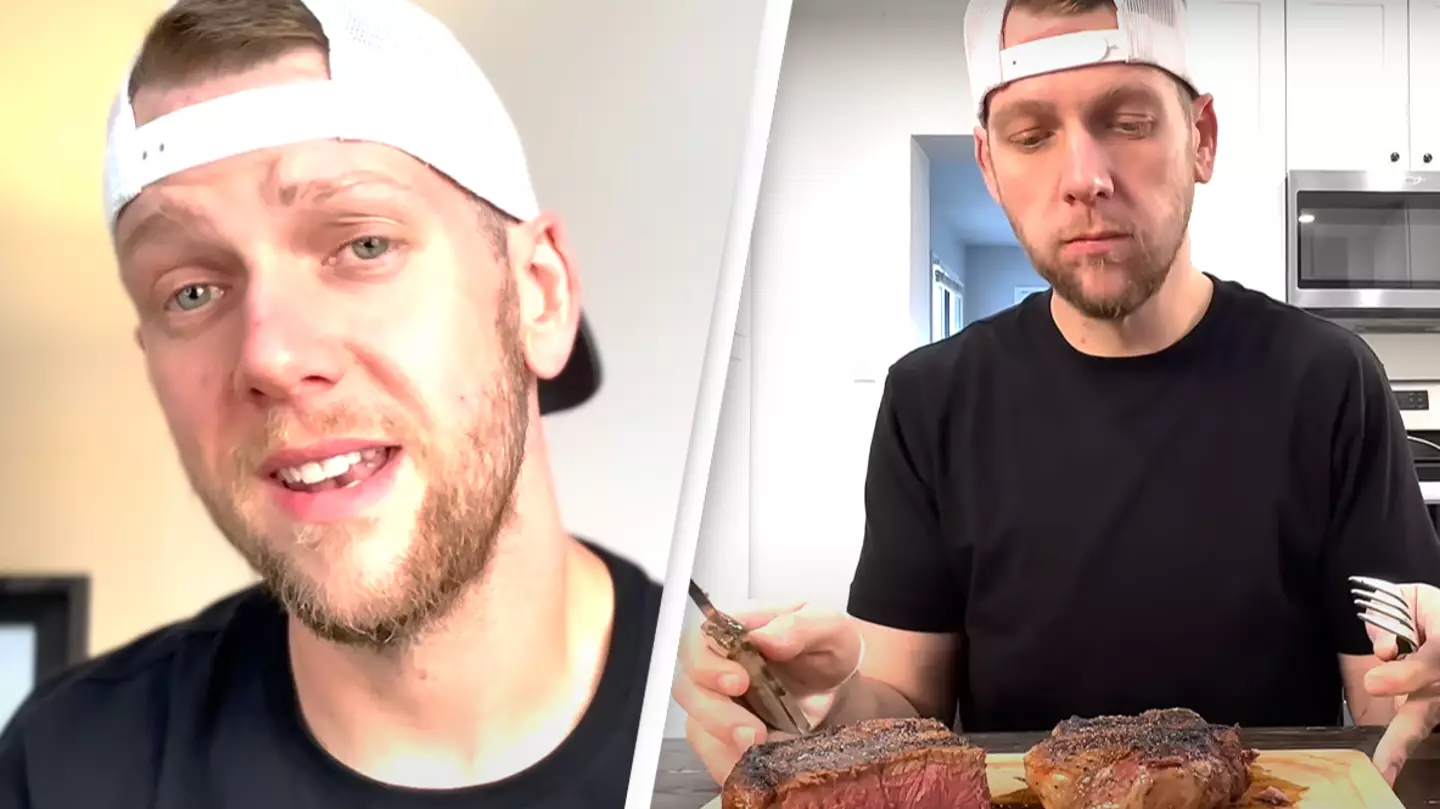
A man who ate nothing but red meat and eggs for a year has revealed the reason he quit the diet, despite praising the diet for ‘changing his life’.
If you’re a fan of carbs, look away now as this could be your worst nightmare.
Patrick Ensley had adopted the hardcore carnivore lifestyle last year, alongside his wife Caitlin, after he experienced severe chronic pain and weight gain.
He decided to take drastic measures to see what it could do for his health.
Committing to only eating red meat and eggs, the dieter revealed he started off at around 300 pounds but has managed to shift 140lbs, as well as a whopping 19 inches from his waist.

Patrick and his wife Caitlin decided to live off red meat and eggs for a year (Getty Stock Images)
He said he started the diet to try and overcome a sugar and carb addiction.
He also experienced a reduction in pain, and says that the new diet did him the world of good, so why quit?
Patrick has been documenting his progress on YouTube under the name of The Carnivore Couple, but has shocked followers by announcing that he will no longer be following the strict diet.
In a video titled ‘Why I Quit Carnivore’ he explained: “I’m entering that maintenance phase now where I’m hitting my goals weight wise, and I’m wondering if I should stay carnivore.”
He explained he will give three ways his diet will be changing and why he won’t be able to call it carnivore anymore.
Patrick said his first reason was that he ‘never wanted to be carnivore just to meet a definition’, and said he wanted to lose weight to be there for his son and twins which are on the way, as well as being around for his grandchildren in future too.
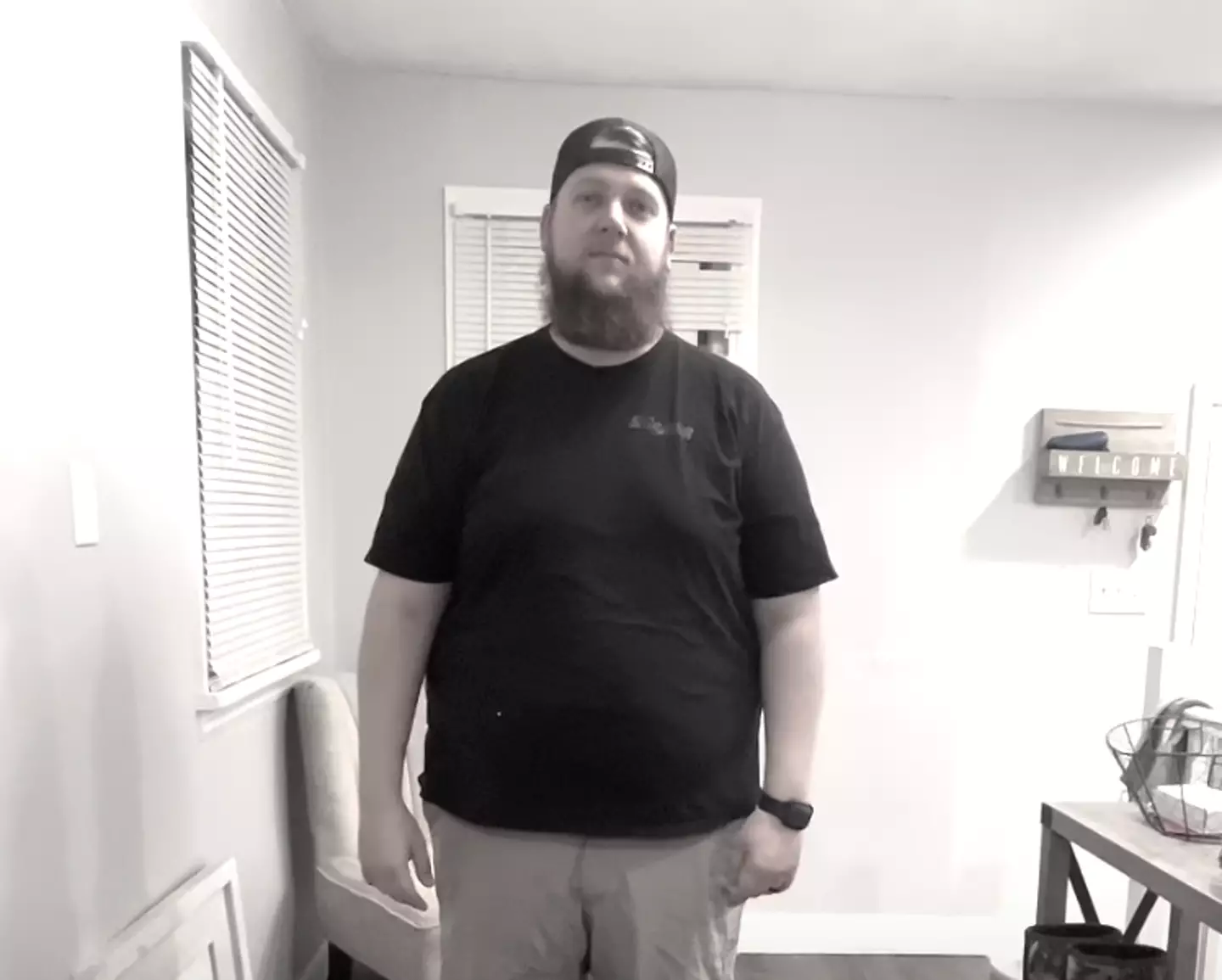
Patrick weighed 300lbs before the diet (YouTube/Carnivore Couple)
He explained: “In the end, I want to do what makes my body feel its best. I’ve lost over 140lbs drinking coffee, eating mustard and red hot sauce, which people said ‘that’s not carnivore, you’re not carnivore’, but at the end of the day you have to do what’s sustainable for you and helps you to be consistent for a long time.”
Pat also showed himself using plenty of seasonings on his steak, which is apparently also not allowed on the strictest definition of carnivore eating.
His second reason is: “Now, that I’m at a healthy weight I’m no longer insulin resistant and I want to add a few things back in to see how my body reacts.”
In other words, those sweet, sweet carbs.

Patrick focused on eating just meat and eggs (YouTube/Carnivore Diet)
“I still plan to be about 95% carnivore, but I’m starting to add low carb fruits in to see how my body reacts.” He said he couldn’t previously handle the fruit or the sugar, but he’s been adding things like strawberries and blueberries back into his diet.
He says he has been able to stave off cravings for more sugar, and feels like fruits are ‘fine’ to eat if you’re insulin sensitive and at a healthy weight.
He has also been experimenting with reintroducing jalapeno peppers as he believes if they are cooked, they are OK, so he has had jalapeno poppers made with cream cheese and a pork panko.
Patrick said he tried raw vegetables and had negative results.
“I’m still having eggs cooked in butter with New York strip, some chicken here and there, but if I want a little bit of sweetness I’ll eat about five strawberries,” he explained.
He refers to his diet as ‘animal-based’ now rather than carnivore.
“I don’t want to live my life in constant restriction. Carnivore not only changed my life, it saved it… I’m not going to be as restrictive going forward. Instead of one meal a day, I’m having two meals a day.”
He says he had one ‘cheat meal’ in 15 months, but he now might introduce one ‘cheat meal’ once a month.
Patrick again stressed the importance of finding what works for you and sticking to it.
Always speak to a doctor before making any drastic dietary changes.
0 comments
Featured Image Credit: YouTube/Carnivore Couple
Topics: Food and Drink, Health, YouTube, Social Media, Fitness
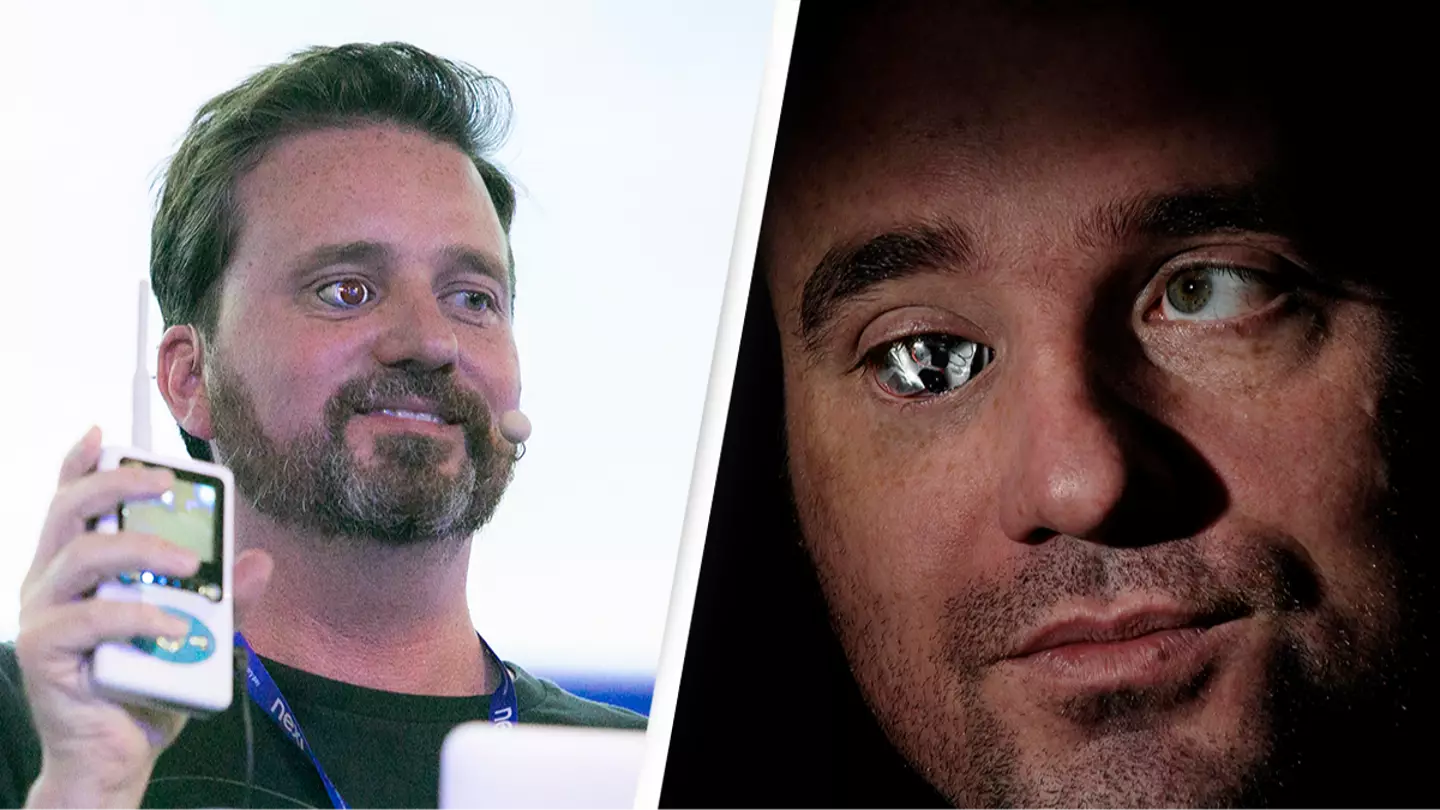
While most people would be pretty heartbroken to lose one of their eyes, Rob Spence saw it as an opportunity.
Rob, AKA the ‘Eyeborg’, experienced a shooting accident when he was a child which ultimately lead to his eye having to be surgically removed.
“I was messing around with a 12 gauge shotgun [and] I tried to shoot a pile of cow crap, but I wasn’t the gun properly,” he recalled to CNN Business in 2011.
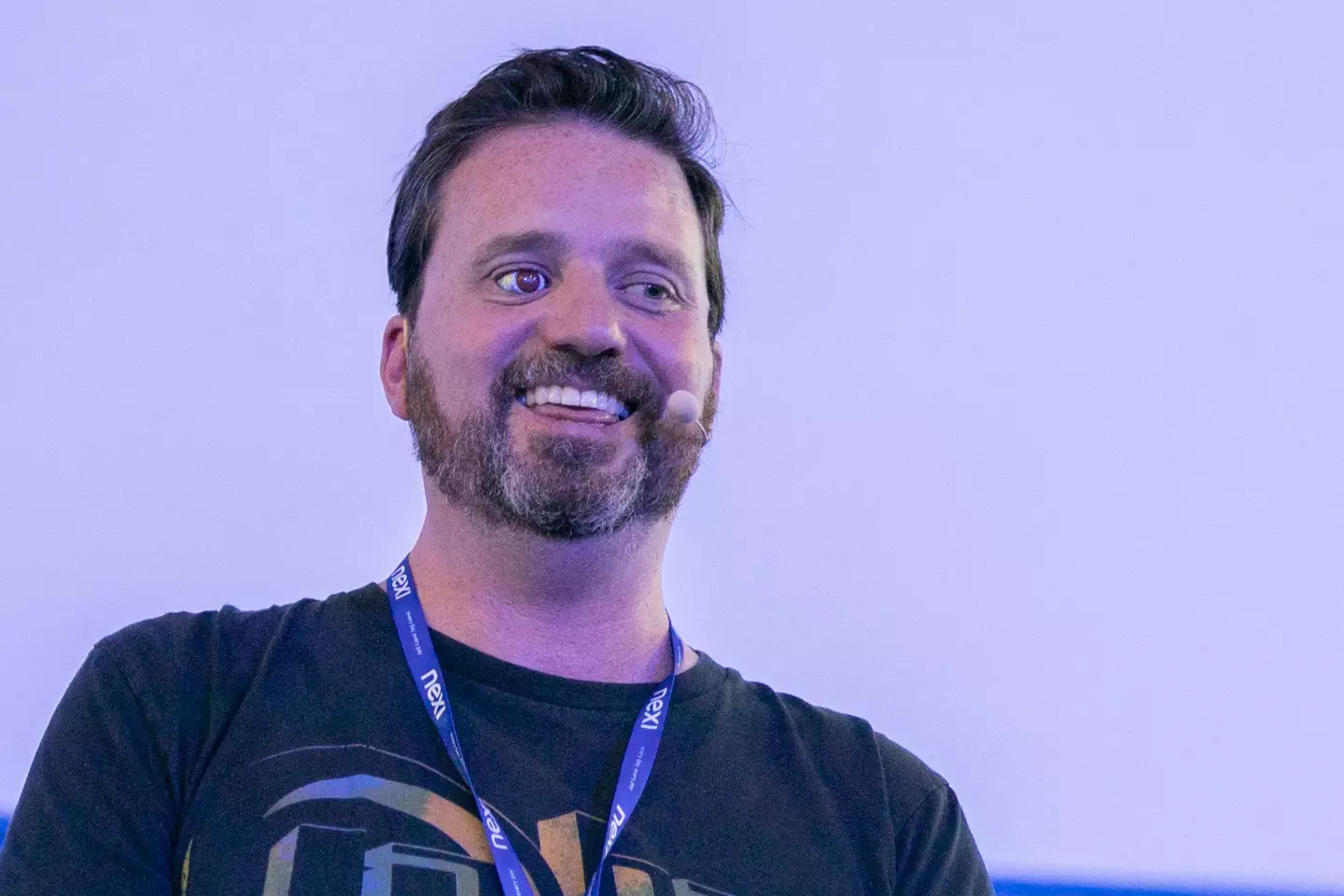
Rob Spence is a one-eyed filmmaker. (Rosdiana Ciaravolo/Getty Images)
“I had my eye right against the gun like a cowboy in the movies and there was an accident,” Rob further explained.
He went on to undergo several surgeries to try save his eye and it wasn’t until his cornea eventually degenerated some years later that Rob had to have it removed.
But instead of being downbeat about it, Rob immediately started making plans about replacing his lost eye with a camera.
Independent radio-frequency engineer and designer Kosta Grammatis helped Rob design is innovative camera eye – a wireless camera that sits behind a prosthetic eye.
The device included a micro transmitter, a small battery, a miniature camera and a magnetic switch for Rob to turn it on and off with.
.jpg)
The device is filled with tiny pieces of tech. (Rosdiana Ciaravolo/Getty Images)
Electrical engineer Martin Ling later helped them create a miniscule circuit board that takes all the data from the camera and send it out to the wider world via a receiver, LiveScience reported.
It should be noted that the camera eye is not connected to Rob’s optic nerve.
Speaking to CNN, Rob admitted that he was worried that people would think that he was ‘screwing with them’ when he first asked for help to design his camera eye – but he found this not to be the case.
“The great thing about engineers is that the love science fiction and pop culture, and this is a very science fiction-y/pop culture thing to do,” he said.
Rob’s eye can film up to 30 minutes of video before needing to be recharged. With Rob being a filmmaker, he has used his extremely unique point-of-view content in his work – which is one of the main reasons for him having the device made.
As per Rob’s website, there’s been several versions of his innovative camera eye created.
Some versions include ‘a clear shell that shows the tech inside, a realistic looking one, and a red glowing Terminator version’.
Rob has broken records with his exclusive technology with his idea listed as the first bionic-camera-equipped false eye in the Guinness World Book of Records.
He achieved the prestigious award in 2009.
As to where he got the idea from, Rob drew inspiration from a Six Million Dollar Man action figure he had as a kid, the filmmaker previously told BBC.




